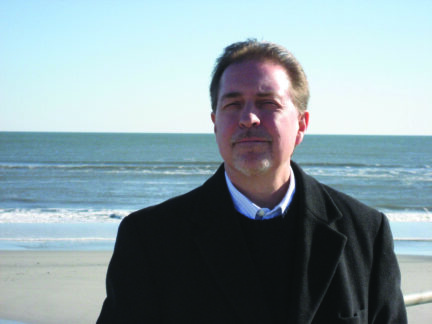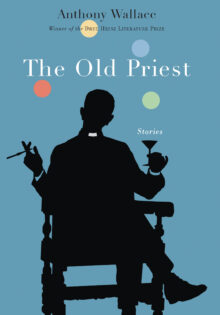
Anthony Wallace
Anthony Wallace is a senior lecturer in the Arts and Sciences Writing Program at Boston University, where he is codirector of Arts Now, a curriculum-based initiative to support the arts at BU. He has published poetry and short fiction in a number of literary journals, including CutBank, theAtlanta Review, Another Chicago Magazine, the Florida Review, River Styx, and the Republic of Letters. His title story, “The Old Priest,” won a Pushcart Prize and was included in Pushcart Prize XXXVII (2013 edition). He and his wife Allene reside in Brookline, Massachusetts.
The Old Priest
The Old Priest is a book of transformations. From the cigar-smoke-and-mirrors world of casino life, to the collection’s title character morphing into a goat-man before the narrator’s eyes, to a family drama upended by a miniature dinosaur in the backyard, Anthony Wallace writes about life-changing events. The characters seek to escape their earthly boundaries through artifice and fantasy, and those boundaries can be as elegant and fragile as a martini glass or as hardscrabble as an Indian reservation. In these eight vividly detailed short stories we encounter cheating husbands, neurotic housewives, out-of-control teenagers, desperate gamblers, deluded alcoholics, and a host of others who would like a chance at something more. Some face the consequences of their actions, while others simply begin to see what they’ve been missing all along. Through wry, ironic prose—and what feels like firsthand experience—Wallace describes a comic and often misguided search for self-knowledge in the most unlikely locations—like the Emerald City, a low-rent gambling den where a cocktail waitress dressed as an X-rated Dorothy offers gamblers more than a Scotch on the rocks; or the Bastille Hotel-Casino, where a dealer dressed as an eighteenth century footman deals five-dollar blackjack to a reminiscing Holocaust survivor. Occasionally a real demon appears, but the collection is mostly about personal demons and the possibility of exorcising them. The stories in The Old Priest have to do with time and memory, and they convincingly open out beyond ordinary daily time to reveal something else—the present moment, perhaps, but a larger, more mysterious conception of it.

